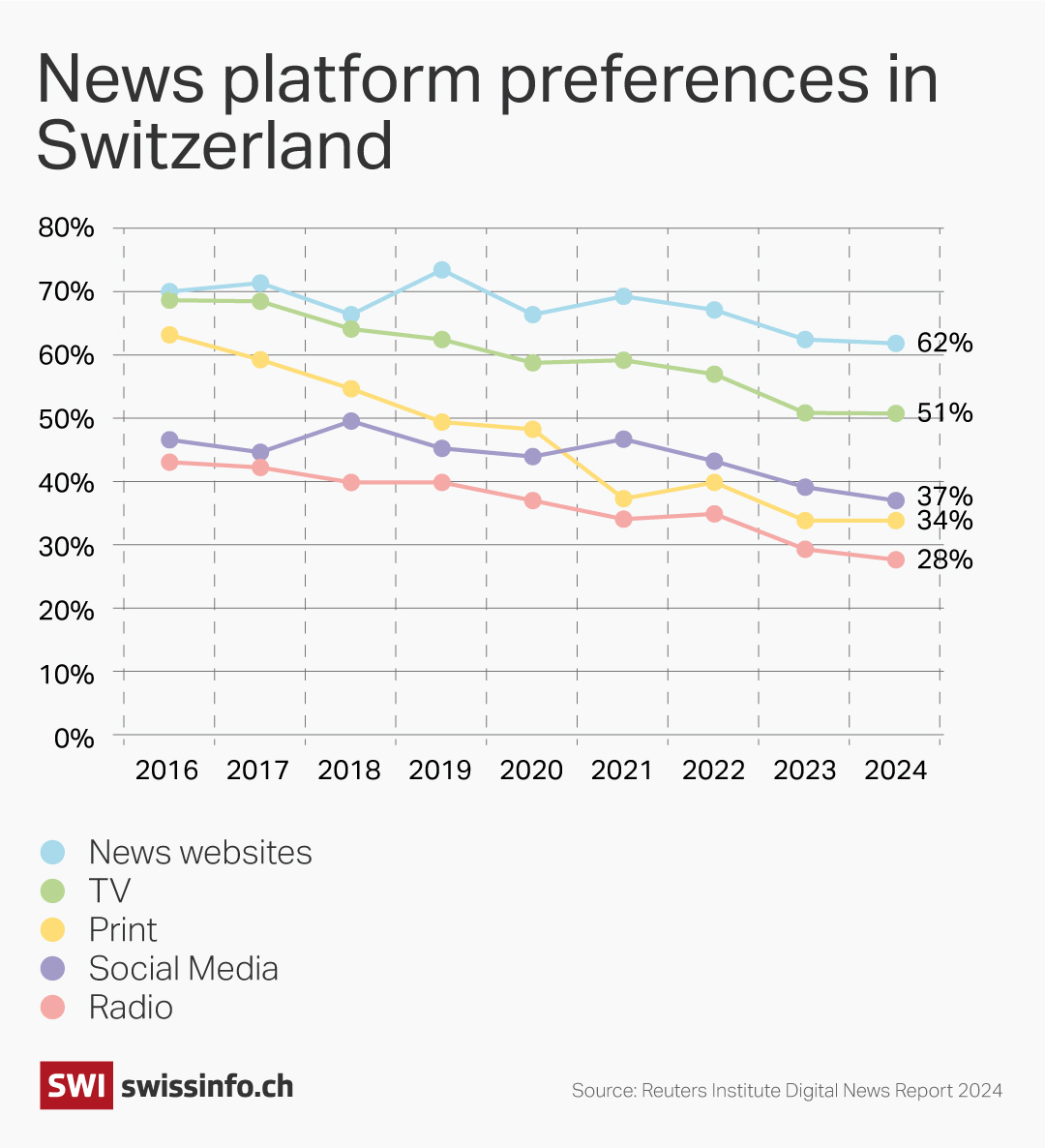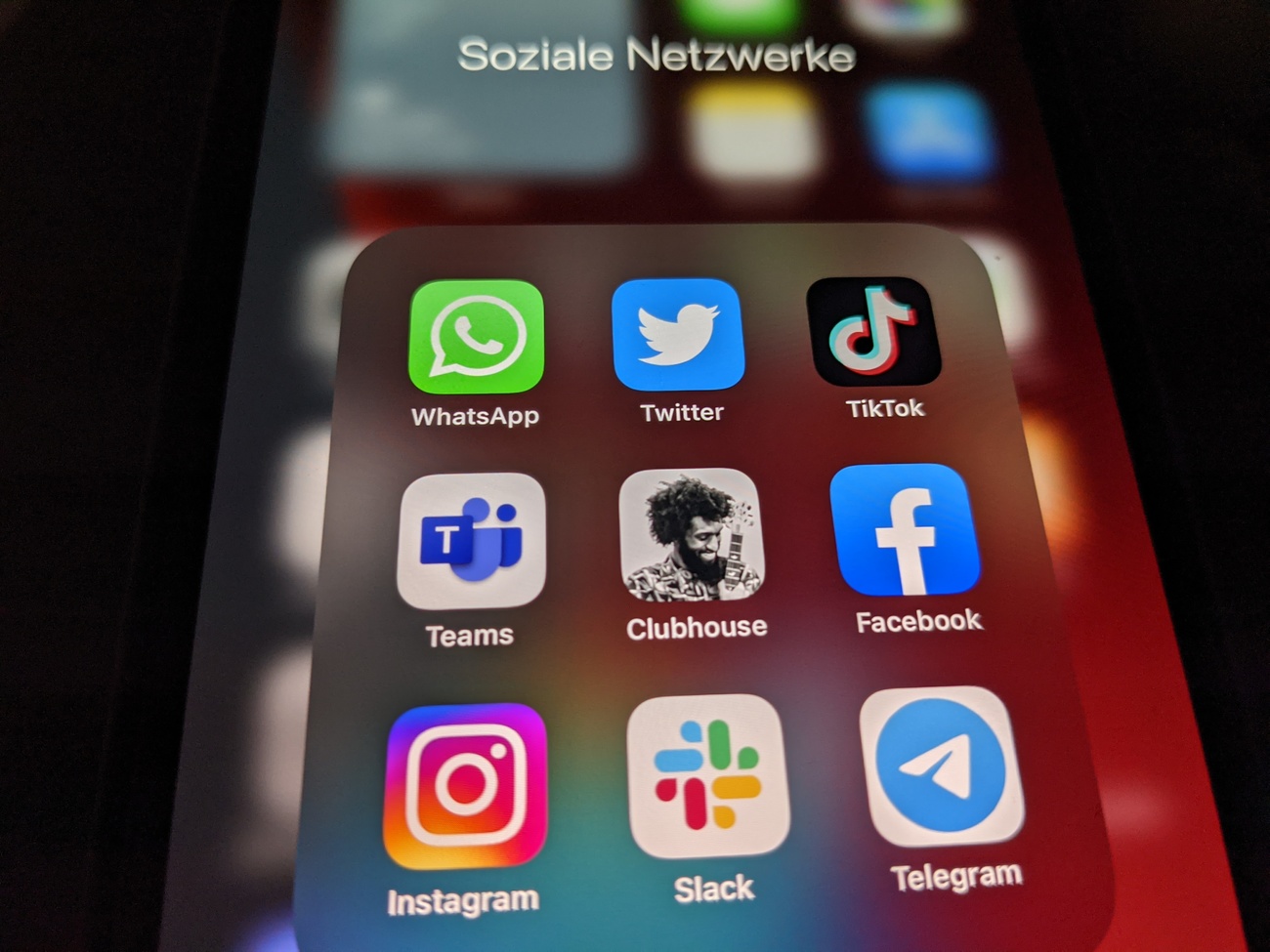
US disinformation surge rings alarm bells for Swiss direct democracy

As the United States struggles with an unprecedented wave of AI-generated fake content in the lead-up to its presidential election, experts warn that Switzerland is not immune. On the contrary, the Alpine nation is particularly vulnerable to the disinformation tactics that threaten voters worldwide.
“Switzerland is very vulnerable because if the people receive wrong information, they will probably make wrong decisions,” says Touradj Ebrahimi, a professor at the Swiss Federal Institute of Technology in Lausanne and an expert on deepfakes.
The expert argues that direct democracies, which grant citizens a prominent role in policymaking, will suffer the most from disinformation and deep fakes driven by artificial intelligence (AI). This applies to Switzerland as well as the majority of the American states, where not only elected representatives but also the people make important decisions.
pic.twitter.com/CaH0yXMO0kExternal link
— Donald J. Trump (@realDonaldTrump) August 15, 2024External link
The ongoing US presidential election campaign illustrates how much AI can muddy the waters of political debate. We have seen and heard all kinds of things over the course of this year: images of Kamala Harris portrayed as a dictatorExternal link at a communist convention, audio messagesExternal link with Joe Biden’s voice asking the electorate not to vote, videos of Elon Musk and Donald Trump in cool clothes dancing impeccably to 70s musicExternal link. These are just some of the deepfakes – fake audiovisual content generated with AI – that are circulating online on social platforms such as X (formerly Twitter).
The aim is to generate disinformation and manipulate public opinion with great impact and little effort. Indeed, millions of people have viewed, liked and reposted these deepfakes. The situation is so worrying in the US that at least 20 statesExternal link have passed regulations against deepfakes and the Department of Homeland Security has warnedExternal link of the risks of AI for the presidential election. Recently, the state of California signed one of America’s toughest lawsExternal link against political deepfakes.
Switzerland, on the other hand, lags in legislation. While the EU has regulated deepfakesExternal link in the EU AI Act, the Swiss government statedExternal link last year that it sees no need for specific regulation against artificially generated and manipulated content.
But despite legislative efforts, neither the US nor any of the world’s largest democracies has been spared from fake videos, photos and news in a year that has brought the most people in history – at least four billion – to the polls.
The escalation of AI-generated disinformation has not yet seen its peak: in the future we will see more and more synthetic media content artificially created, according to Ebrahimi. And as technology becomes more sophisticated, it will be increasingly difficult to differentiate them from what’s real. Other experts consulted by SWI swissinfo.ch agree with that assessment.
Here are the top three reasons why Swiss democracy should not underestimate the danger of AI-driven disinformation.
1. Search engines and chatbots show biased and incorrect information
Non-profit organisations and research groups have already warned against the dangers and limitations of AI software and algorithms for Swiss democracy. The Swiss NGO Algorithm Watch CH analysedExternal link the responses of Microsoft’s Chatbot within the Bing search engine before the Swiss federal elections in October 2023 and found that one-third of the election-related responses contained factual errors and that the AI even went so far as to invent scandalsExternal link about certain political personalities. “Generative AI chatbots that are integrated into search engines can be misleading, because people rely on the information they gather through search engines” says Angela Müller, director of Algorithm Watch CH.
But Web search engines can also be misleading. A white paperExternal link by the universities of Bern and Zurich found that the most-used search engine in Switzerland, Google, gives unequal visibility to certain sources of information and varying amounts of critical views on a topic depending on the search language (German, French or Italian). Before the popular vote on the Climate Protection Law in June 2023, for instance, researchers found that Google favoured information from parties that were more critical of the law in response to queries in the German language as contrasted to queries in Italian and French.

More
Swiss found to be gullible regarding fake news
“In an already polarised multilingual democracy like Switzerland, these results should worry us,” says Mykola Makhortykh, one of the researchers behind the white paper. He sounds the alarm over the fact that there is no transparency on how search algorithms and AI software work and that, despite promises, large technology companies fail to set up effective systems to combat fake news and polarisation.
2. AI-generated disinformation is making the media landscape less reliable
Today’s AI systems also allow for faster and easier creation and dissemination of disinformation, says Makhortykh. More and more news sites are imitating authoritative or traditional mediaExternal link, but are actually full of automatically-generated AI content which is often incorrect and sometimes completely fabricated. These news items fill the pages of major social media platforms, which account for more than 60% of the false information circulating in Switzerland according to a surveyExternal link conducted by the fög.
Even if only a small partExternal link of the population would read AI-generated news, it can be so well done that people find it more difficult to identify it and avoid fake news. A recent OECD survey ranked the Swiss among the least able to recognise disinformation.
“If news generated by real-life journalists and AI look alike, this is really dangerous,” says Karsten Donnay, professor of political behaviour and digital media at the University of Zurich. People might feel deceived and lose confidence in the media system as a whole, he adds.
This ecosystem has already led the Swiss to change the way they inform themselves. The latest figures published in the Reuters Digital News Report External link show that the country’s main source of information is online news sites. Traditional and more reliable channels such as television, print media and radio remain important but have been experiencing a significant decline since 2016.

One reason for the decline in traditional media consumption is that people have become bombarded with news and feel exhausted, the report says. As a result, the Swiss are generally losing interest in being informed, which is part of a global trend. Switzerland has seen a less extreme shift than some other democracies, such as the US, where the population is close to abandoning traditional media platforms.
But this doesn’t make it more likely that Switzerland can minimize the risks of AI, Donnay says. He believes that search engines and chatbots will continue to gather momentum as sources of information.
“People will use them more and more and we don’t really know where this will lead,” the professor points out. However, he estimates that it’s not too late to put in place guardrails to ensure that also non-journalistic information sources adhere to certain standards.

3. Generative-AI technologies are incredibly persuasive
Until now, it has been difficult to prove the effect of AI-generated disinformation on the population.
“It is not a mass phenomenon. Disinformation circulates in a niche,” says Fabrizio Gilardi, professor of political analysis at the University of Zurich. He says that disinformation has always existed and the most conclusive studies show that it has much less influence than people think. “Artificial intelligence is not going to change the situation substantially,” he says.
Independent studies conducted in collaboration with MetaExternal link (Facebook’s parent company) during the 2020 US presidential election proved that the disinformation circulating on social media had no significant effect on people’s attitudes and behaviour and did not increase polarisation.
But this might change with the advent of interactive AI platforms such as ChatGPT. ResearchExternal link carried out in the US on about 900 people by the Swiss Federal Institute of Technology Lausanne (EPFL) showed that ChatGPT is very adept at shaping our opinions.

More
Does social media fuel fake news in Switzerland as much as in the US?
“The persuasive capacity of generative AI models is so high that they could influence elections,” says Francesco Salvi, one of the authors of the study. Salvi and his team showed that ChatGPT-4 has 82% higher odds than a human of changing a person’s mind.
When in possession of personal information about a user, ChatGPT-4 can generate personalised and more persuasive messages. This is unprecedented, even among other high-profile disinformation cases, such as the illegal use of the personal data of millions of Facebook users for political influence by the firm Cambridge Analytica, revealed in 2018. “We are facing a potential Cambridge Analytica case to the nth power. And I am convinced that it is already happening,” Salvi argues.
Edited by Benjamin von Wyl and Veronica De Vore/ds

More
Newsletters

In compliance with the JTI standards
More: SWI swissinfo.ch certified by the Journalism Trust Initiative





























You can find an overview of ongoing debates with our journalists here . Please join us!
If you want to start a conversation about a topic raised in this article or want to report factual errors, email us at english@swissinfo.ch.